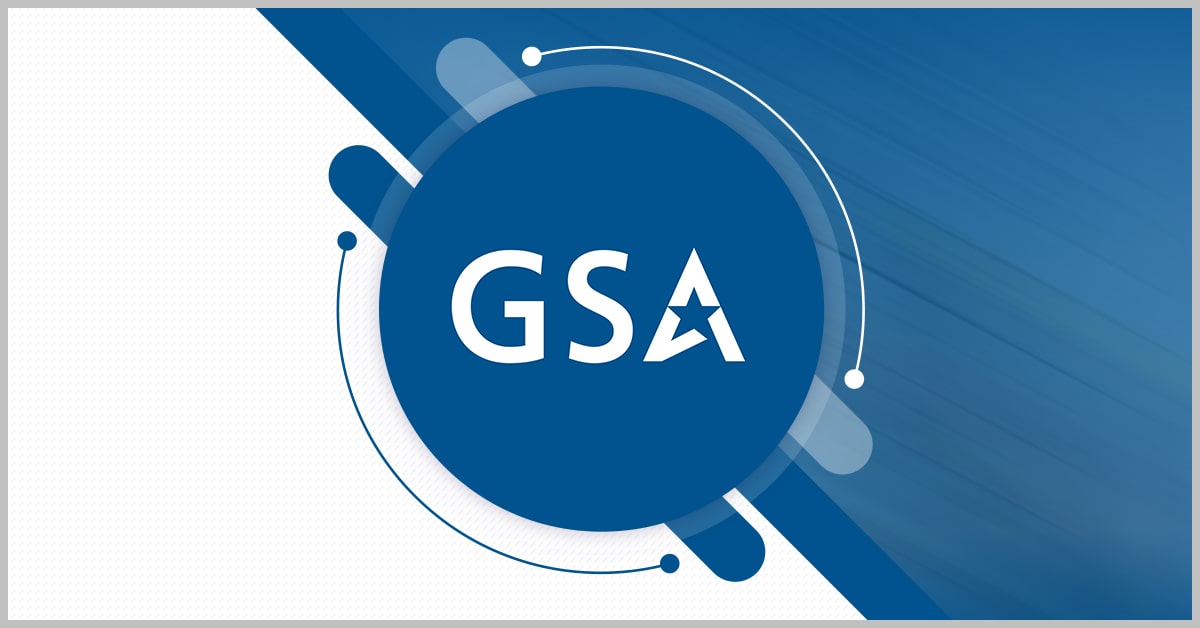In many ways, the U.S. General Services Administration effectively serves as the back office of the entire federal government. GSA is the largest property manager in the world, the third largest design and construction company in North America and the third largest fleet manager in the world — the agency even outranks the Smithsonian as the world’s biggest purveyor of arts and antiques.
“Our business portfolio is broad and wide,” David Shive, GSA’s chief information officer, said in his keynote speech at GovCon Wire’s Innovative and Emerging Technologies Forum. “We operate as a widely diversified conglomerated corporation serving the agencies of the federal government.”
In his keynote remarks, Shive noted that GSA has leveraged technology to optimize and digitize large enterprise businesses since its inception; an entrepreneurial culture and a forward-leaning approach have long defined the agency. He also shared his thoughts on the emerging technologies that will be significantly impacting the federal tech market in the coming years.
Internet of Things
Shive explained that GSA has one of the three oldest Internets of Things in the U.S. government. “We have a sensor rich environment that’s been collecting data across a broad spectrum for a number of years,” he said.
Shive’s vision for GSA’s IoT will harness this data to “optimize how buildings are run, to get the best strategies to reduce carbon footprints, to make people’s use of facilities as effective as possible, to assess and sense when things are going to break before they break and become super expensive,” and much more.
However, while GSA has been in the IoT world for years, the federal government is just now wrestling with it on a much larger scale. Smart connected devices that may not look like laptops or cellphones are now “quickly dwarfing the traditional computing enterprise,” Shive revealed. “How you manage those things, how you secure those things matters.”
AI/ML
Shive also predicted that artificial intelligence and machine learning will continue to dominate the public sector as one of the most critical emerging technologies of the decade.
“We are slowly moving from the information age, which we’ve been in for the last 20 years or so, into the augmentation age, where we’re taking a look at not just humans doing the knowledge work of the 21st century, but augmented capabilities working alongside us to do that, being a force multiplier for the knowledge workers that exist here in government,” said Shive.
The technology is not without risk, but Shive nonetheless expects AI/ML to be ubiquitous throughout government in the next few years.
5G
5G can play a critical role in decreasing the lag in an increasingly connected world.
Shive said of 5G, “Being fully connected and processing out there at the end and having access to that data in real time or near real time — it’s going to transform the way we live and operate in our personal lives, and it’s also going to do the same for government.”
Quantum
The last technology area Shive mentioned was quantum computing. “We’re doing some meaningful work in this space,” he shared. Quantum, Shive explained, has “unimaginable processing power, which is going to run and power that connected world that we’re very rapidly moving into.”

To learn more about the future of quantum in the federal government, join the Quantum Technologies Forum hosted by our sister platform, ExecutiveBiz Events, on July 28. Dr. John Burke, principal director of quantum science for the Department of Defense, is slated to deliver a keynote address. Click here to register.







